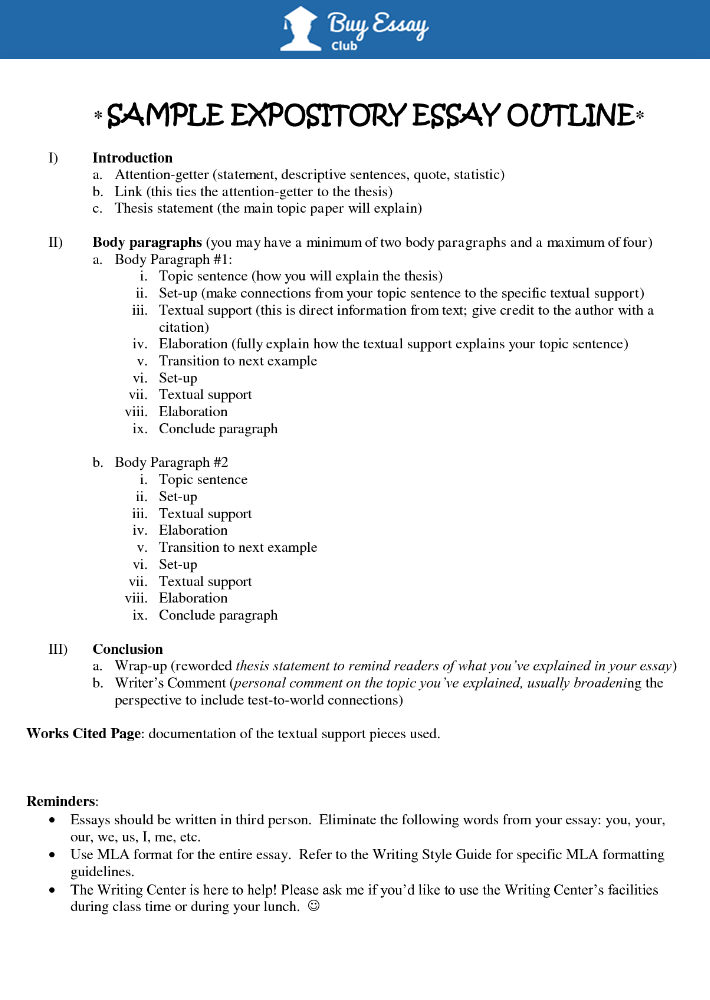
2/4/ · Structure of an argumentative text. An argumentative text generally consists of three fundamental parts: Introduction or approach, which is the starting point or approach of an initial situation, from which the problem to be addressed in the text should emerge. Also known as “premises” or “data.” 8/11/ · An argumentative essay is a piece of writing that takes a stance on an issue. In a good argumentative essay, a writer attempts to persuade readers to understand and support their point of view about a topic by stating their reasoning and providing evidence to back it up 25/5/ · An argumentative essay is quite similar to a persuasive essay, as it's designed to convince the reader of your point of view. The difference is while a persuasive essay may have a certain viewpoint, the argumentative essay will expand on it. For example, a persuasive essay will say that cities should take up more recycling programs
Topic 34 – Argumentative texts. structure and characteristics - Oposinet
We explain what an argumentative text is, structure of argumentative text, its resources, types and other characteristics, structure of argumentative text. Also, its structure and examples. An argumentative text is that oral or written text in which the author pursues the transmission of a perspective around a specific topic or series of topics, that is, that aims to convince the reader to take a certain structure of argumentative text. In this, they are distinguished from the expository texts.
Argumentative texts are normally considered synonyms for dissertation, essay or opinion, given that in their approach to the specific topic persuasion strategies are used That is, strategies that make the approach to structure of argumentative text subject convincing in the eyes of the reader. Everything always in order to give strength to their structure of argumentative text points of view.
Argumentative text types Argumentative texts can be of a very different nature, depending on their construction, their development mechanisms and their context of appearance. Here are some possible types:. There may also be a previous thesis, which is an earlier starting point that is rescued in the text an investigation of another, an ancient text, etc.
Published by Isabella View all posts by Isabella. Skip to content. by Isabella Posted on April 2, April 21, What is an argumentative text? However, to do this type of texts, use: Exhibition resources: They offer the reader relevant information. Narrative resources: They can structure of argumentative text stories that highlight the focal point.
Rhetorical Resources: They are formal tools to enhance or beautify the meaning of the text. These resources can be: Quotes from a book or publication; Textual references to an authority in the area; Examples and illustrations; Abstractions, generalizations, enumerations; Schemes and simulated situations; Paraphrases and reformulations; Descriptions and stories.
Here are some possible types: Essays. These are texts of a literary type, in which the author freely spends or reflects on a subject of his choice, to propose, aesthetically, a point of view. Election propaganda. Typical texts of political contests that try to convince the other through more or less rational or emotional arguments, to assume a specific political position, facing an election, militancy, etc.
Those texts related to the consumption of products, which seek to convince us to buy a specific brand or the advantages of a specific product above its competition.
Opinion texts. Appeared in the media editorials or opinion piecesthey tend to promote a certain social, political or intellectual perspective among readers of a newspaper or viewers of a television program.
Legal texts. Many legal texts defend a type of interpretation of the laws written in codes or in the Constitution, by means of arguments and deductions and references to past cases. This is what lawyers do in trials. Characteristics of an argumentative text The argumentative texts are characterized by: Have a persuasive intention that is, wanting to convince the reader of something.
Using arguments to convince, structure of argumentative text, that they are reasoned propositions through the gradual and careful exposition of information, accompanied by their desired interpretation, structure of argumentative text.
Organize your content in the most convenient way for the intended purpose. Get hold of strategies typical of other types of text expository, narrative. You can use different types of arguments : logical, emotional or affective. Structure of an argumentative text An argumentative text generally consists of three fundamental parts: Introduction or approachwhich is the starting point or approach of an initial situation, from which the problem to be addressed in the text should emerge.
Conclusion or synthesisfinal stage to which the arguments lead and that summarizes the point of view on the subject of the author of the text. Published by Isabella. Prev Scientific Text — Concept, types, structure and characteristics. Next Expository Text — Concept, types, structure and characteristics.
Eng10Q2 - Parts and Elements of an Argumentative Essay
, time: 7:50Academic Writing Guide to Argumentative Essay Structure

3 How to write an argumentative text Let‘s practise a very popular text form at school: the argumentative essay which discusses the advantages and disadvantages of a problem. It consists of: 1. Introduction lead-in to the topic / question 2. Main body a) arguments in favour of (pros) + 25/5/ · An argumentative essay is quite similar to a persuasive essay, as it's designed to convince the reader of your point of view. The difference is while a persuasive essay may have a certain viewpoint, the argumentative essay will expand on it. For example, a persuasive essay will say that cities should take up more recycling programs An argumentative text is usually defined as a type of discourse concerned with the presentation and evaluation of arguments, either rethorical or dialectical, which show the cause-effect relationship established in an event or theory

No comments:
Post a Comment